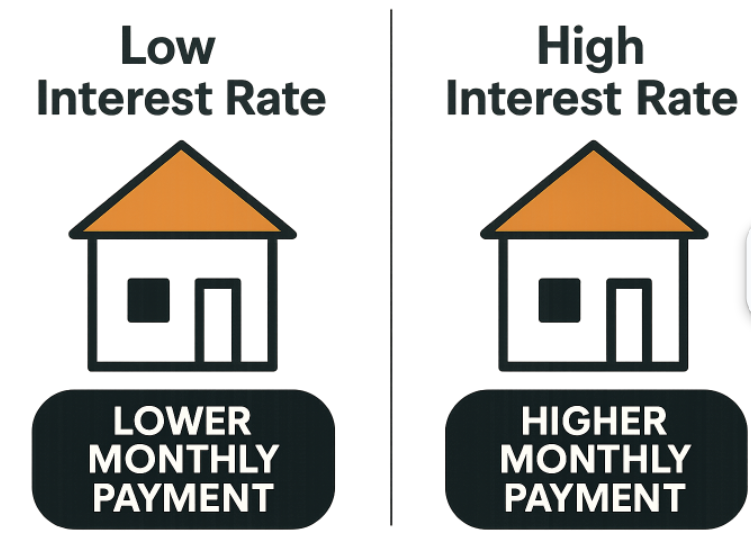As with any technology deployed to solve a challenge, backup generators come at a substantial price, ranging from £ 7,000 to £ 14,000. As we advance technologically, however, these prices do not necessarily need to remain fixed. Understanding the factors that create cost for business owners as well as homeowners is pivotal in avoiding overspend.
Through my years of assisting different organisations in analysing their needs, I’ve concluded that in order to avoid burning a hole in your pocket, restructuring your strategies and understanding your requirements can do wonders. With the appropriate methods, it is possible to reduce backup costs by up to 100%.
Analysis of the Cost Associated with Backup Generators
Focusing solely on the generator’s sticker price will result in an incomplete understanding of the associated cost. People often overlook that there are multiple layers of expense associated with a backup generator:
Initial Purchase Price
The average cost for a residential backup generator is around £15,000. But this price can drop to £2,000 depending on the brand and fuel type chosen. Commercial models can range higher, exceeding £50,000. These prices vary based on wattage as well as whether a standby or portable generator is chosen.
Installation and Setup Fees
Installation costs, which can go as high as £5,000, are often neglected. This is lower for commercial installations, especially ones that require electrical rewiring or modifications to fuel lines.
Fuel and Maintenance
The long-term costs of a backup generator are significantly influenced by fuel consumption. Generators powered by diesel, natural gas, or propane have varying operational costs. Furthermore, routine maintenance, such as oil changes, filter replacements, and inspections, among others, adds £100 to £500 annually.
Unexpected Expense: Repair and Maintenance of Parts
Unaccounted for unexpected repairs, such as replacing batteries, alternators, or voltage regulators due to weak power backup, can significantly increase costs if the generator is not properly maintained.
Five Reliable Strategies to Save 30% on the Cost of Your Backup Generator
Through my consulting work on generator installations and cost-saving measures, I have identified five practical strategies to economise on generator installations while maintaining reliability.
1. Let Your Needs Dictate the Size of the Generator
Oversizing is the most common mistake I see. For instance, homeowners often opt for standby generators with a capacity of 22kW when 10kW units are more optimally suitable. Larger generators incur higher operational costs and require even greater upfront investment. Perform a professional load assessment or use an online wattage calculator to establish the correct capacity for your crucial devices.
2. Select Natural Gas or Propane Over Diesel
The choice of fuel can have a more significant impact on operational costs. Diesel generators are expensive to run, and while robust, natural gas or propane is more economical for the majority of residential users. Fuel savings from switching from diesel to propane can be as high as 20% over five years.
3. Invest in Preventive Maintenance
A for-profit business I consulted for wasted over £ 5,000 on emergency repairs because they neglected regular servicing. Performing routine oil changes and inspections not only ensures the longevity of your generator but also minimises the risk of expensive repairs. While a maintenance plan might set you back £200 every year, the preventive savings accrued would far outweigh that expense over time.
4. Buy During Off-Season Sales
Very few people actively consider the timing of their purchase, but generators can be up to 15% cheaper during spring and early summer. The associated price hikes due to increased demand just before hurricane or winter storm seasons are also well-documented. With a bit of foresight, accessing discounted pricing and promotional offers is undoubtedly possible.
5. Consider a Used or Refurbished Unit
Purchasing used or refurbished units makes even more sense when one is on a budget. Often sold by manufacturers, these units come with warranties and are priced anywhere from 20-40% less than brand-new generators. As with all purchases, however, it is crucial to buy from a trusted seller to avoid extra costs from repairs that may not be immediately apparent.
Backup Generator Cost: A Comparative Review
For your consideration, here’s an analysis summary based on the average costs associated with each generator type:
Portable Generators
Range from £500 to £2,500. Benefits power for short amounts of time; however, it requires a manual setup, has a limited range, and is expensive in the long run, in terms of fuel.
Standby Generators
These types range in price from £2,000 to £15,000. Also known as “automatic” generators, these invest the highest amount of fuel for standby reliability.
Whole-House Generators
Used in businesses or large homes, these whole-house systems are expected to cost above $20,000. However, they boast better power-to-appliance functionality.
Personal Experience: How I Helped a Client Reduce Fuel Expense
A small bakery that I worked with last year was using an old standby diesel generator that cost them over £600 in fuel. After investigating, a smaller natural gas generator was suggested, leading to the diesel model shrinking expenses faster than expected. Recovery of expenses occurred within 12 months. This indicates that informed generator choices can lower the cost of backup generators.
Conclusion
The cost of the backup generator can indeed be lowered by 30%, and this is only possible with the right approach. Savings can be realised through proper selection of unit size, switching to economical fuel, unit maintenance, off-season sales and purchases, and even opting for certified refurbished models. For homeowners and business owners alike, investing a bit of time in proper research and some basic proactive maintenance can lead to significant savings in the long run.
If you plan to purchase a generator soon, consider that the cheapest-priced unit may not offer the best value in the long run. Thoughtful preparation guarantees reliable power and considerable savings.
FAQs
What is the average cost of installing a backup generator?
The suggested range of installation cost is £500 to £5,000, influenced by the electrical work required, permits, and if a concrete slab is needed.
Which has a lower overall cost, a portable generator or a standby generator?
While portable generators are cheaper to purchase, standby generators tend to have a lower overall backup generator cost in the long run due to greater fuel efficiency and durability.
Can I install a backup generator myself to save money?
Although self-installation could potentially save costs, it would only make sense if you are a licensed electrician. Poor installation can incur warranty voids and costly subsequent repairs.
How frequently should I service my generator to reduce costs?
Servicing the generator within a timeframe of 6 to 12 months saves a considerable amount in breakdown costs and adds long-term value.
Do solar backup systems have lower long-term costs?
While initial costs are higher, having minimal ongoing expenses makes them more economical over the long term in 10-15 years.
Latest Blogs:
| Top 10 innovations by Tech Vikram |
| Wheon Grand Theft Auto |




